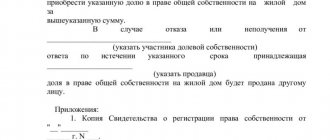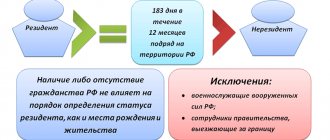It is advisable to discuss any questions regarding the conditions for participation in a business, including the possibility of exiting the business, selling a share or the entire business, already at the stage of creation and active development of the business, while everyone is inspired and does not think about possible difficulties, TaxCoach experts believe.
At the same time, it is important that all, even the most non-standard agreements between partners, are regulated as much as possible, taking into account the real tools and capabilities of the current legislation. This will help avoid unexpected scenarios for the development of relations in the future.
Today is another case from our practice to illustrate how you can formalize the fantasy vision of business owners regarding a possible exit from it.
Initial situation:
The production group of companies has several owners. Between themselves, they agreed on the following mechanism for exiting the business:
- First of all, each of the owners is free to express their will to leave the business.
- He must first offer his share for purchase to the remaining participants, regardless of whether he wants to sell the share or gift it, for example, to relatives;
- After this, internal auctions are held between the owners.
The owner who offers the maximum price acquires a share in the business of the exiting owner, but only with the consent of the remaining owners.
If the owners have not agreed among themselves on the price of purchase and sale of a share in the business or one of them opposes such a transaction, then the owners:
- or continue to conduct business as before;
- or they are looking for a buyer for the entire business.
Let us consider in order how the listed conditions can be regulated in corporate documents.
Alienation of real estate
Both a will and a gift agreement are transactions; a will is an expression of the will of a citizen to dispose of his property in the event of death, i.e. the transfer of property from the testator to the heir will pass only at the time of the testator's death, provided that the will is valid on the day of the testator's death, and the heir under this will will accept the inheritance.
Therefore, for the owner of property, in order to exclude the possibility of being left without property during his lifetime (there are many cases when elderly people, having donated housing that belongs to them, remain on the “street”), it is best to draw up a will.
But during the execution of the will, when the testator dies, it may turn out that the testator has persons who have the right to an obligatory share (minors and disabled children, disabled parents, spouse. Disabled people are disabled people of groups I, II, III; women who have reached 55 years, men - 60 years old, regardless of whether they have been assigned a pension or not).
In this connection, the heirs of the testator, even during his lifetime, are, as it were, insured against the fact that at the time of the testator’s death there will be obligatory heirs, because of which all bequeathed property will not pass to the heir under the will, or there is a very common version that the will will declared invalid by the court (although this requires grounds provided for by law, and wills are not so often recognized by the court as invalid), therefore candidates for property rights holders often insist that the property of the person who wants to bequeath it would be better off donated to them during the owner’s lifetime.
Very often, owners apply for certification of a donation agreement for property that will be transferred to the donee after death, however, according to the Civil Code of the Republic of Belarus, an agreement providing for the transfer of a gift to the donee after the death of the donor is void (i.e., such an agreement is not provided for by law).
Under a gift agreement, one party (the donor) gratuitously transfers or undertakes to transfer to the other party (the donee) an item of ownership, or a property right (claim) to himself or a third party, or releases or undertakes to release it from a property obligation to himself or to a third party .
Thus, the transfer of ownership from the donor to the donee is carried out during the life of the donor, and the donor must understand the legal consequences of this agreement, that if, for example, real estate is donated, then from the moment of state registration of the agreement and registration of the transfer of ownership of this property to the donee, he will no longer be the owner of his property.
Therefore, when intending to donate your property to someone, think a thousand times whether you are doing the right thing, because if a will can be canceled or changed by drawing up a new one, then the gift agreement, if it is executed, cannot be terminated.
And if the donor gives a residential property that belongs to him, do not forget about the essential condition of the donation agreement for a house, apartment, part of a residential building or apartment - an indication in the contract of a list of persons who retain the right to use the residential premises after the transfer of ownership of it.
Conducting auctions between owners
The relationship between owners regarding internal trading for the sale of shares (shares) in companies is regulated in a corporate agreement:
The owner of a business who wants to sell a share freely invites the other participants to purchase it and agrees with them on the purchase price. Based on the results of negotiations (internal tenders), two options are possible:
- the owner of the business reaches an agreement with one of the participants on the sale of the share, in this case, an agreement for the sale and purchase of the share is concluded between the exiting owner and the participant who offered the highest price with the consent of the remaining owners;
- none of the participants agrees to purchase the share at the agreed price, as a result of which the share purchase and sale agreement is not concluded.
In order for the provisions of the corporate agreement on the procedure for conducting internal trading to be properly implemented in practice, the Company’s Charter stipulates:
- a participant has the right to sell or otherwise alienate his share in the authorized capital of the Company to one or more participants of the Company only with the consent of the remaining participants of the Company. This provision in the LLC Charter can be provided on the basis of clause 2 of Art. 21 of the Law “On LLC”.
- Such consent is considered received if the Company's participants within 30 days submitted in writing a statement of consent to the alienation of the share or did not submit a statement of refusal to give consent within the specified period.
The period for considering the proposal and giving consent does not have to be 30 days; it can be anything - either more or less.
These provisions are aimed at protecting the interests of all owners:
- firstly, thanks to the fixation in the Charter of the need to obtain the consent of the remaining participants of the Company to sell a share to one of the owners, we oblige the exiting owner to all other participants without exception (and not to one of the owners) to send a proposal (offer) for the sale of their share in the authorized capital of the company and thereby launch internal trading;
- secondly, this provision helps protect the remaining owners who do not participate in the transaction concluded as a result of internal tenders. Such owners may not want to continue to operate the business with a reduced number of participants. In this case, they do not agree to sell the share to another owner.
In this case, all participants remain in the Company and the search for a buyer for the business as a whole begins.
Thus, each owner makes a conscious choice - whether he wants to increase his share in the business and continue working, stay with what he has, or take the path of selling the business entirely.
What to do with the share owned by the Company? Options and Tax Implications
The Law “On LLC” provides for several situations when the Company acquires a share in its authorized capital. Among them are such popular ones as the withdrawal of a participant from the Company, and less common ones, such as, for example, the mandatory repurchase of the share of a participant (minority shareholder) who voted against the approval of a major transaction. At the same time, having received a share in its authorized capital, the Company is obliged to somehow get rid of it within a year.
There are three ways to solve this problem:
- distribution of shares among the remaining participants;
- sale of shares, including to third parties;
- repayment by reducing the authorized capital.
The choice between them is a relatively free thing. But practice shows that despite the freedom of choice, most often participants use the first method, distributing the share of those who leave among themselves. The sale of a share, and even more so its repayment, is extremely rare.
The popularity of this option is explained by the simplicity of registration and the absence of the need to make payments between the parties for the share. At the same time, the issue of tax consequences of such a choice, as a rule, is not taken into account. Meanwhile, it is important. Let's figure it out.
Possibility No. 1. Distribution of shares between the remaining participants
In this case, the share of the retiring participant is distributed proportionally among the remaining participants, whose shares in the authorized capital increase accordingly. The only requirement put forward by the law is full payment of such share by the former owner. It seems that everything is great, take it and distribute it.
“A fly in the ointment” is added by the position of the Ministry of Finance of the Russian Federation, again voiced in a recent letter No. 03-04-06/7991 dated February 9, 2021, which contains an interesting statement. For clarity, here are excerpts from the letter:
Upon subsequent distribution of a share or part of a share in the authorized capital of the company between all remaining participants of the company in proportion to their shares in the authorized capital of the company, the income of the remaining participants of the company, in whose favor the share of the retired participant of the company was distributed, is determined based on the actual value of the received share, determined on the basis data from the company's financial statements. “...” The actual value of the share is determined on the basis of the company’s financial statements for the last reporting period preceding the day of filing the application to leave the company. “...” Taking into account the above, the income of the remaining participants of the company, in whose favor the share of the retired participant of the company was distributed, is determined based on the actual value of his share, determined in accordance with clause 6.1 of Article 23 of the Federal Law, and the corresponding part of the share in the authorized capital of the company, received by each participant of the company when distributing the share of the retired participant of the company. “...” Letter of the Department of Tax and Customs Policy of the Ministry of Finance of Russia dated February 9, 2021 N 03-04-06/7991
It turns out that when the Company’s share is distributed among its participants, the latter receive income equal to the actual value[1] of the share of the withdrawing participant.
[1 - let us recall that the law understands the actual value of a share as a part of the company’s net assets, proportional to the specific share of a particular participant. The value of net assets is defined as the difference between the company’s property and its liabilities.] For a better understanding, let’s simulate the situation.
LLC “A” has three participants: U-1 - 50%, U-2 - 40% and U-3 - 10%. The size of the net assets of LLC “A” is 100 conventional units. Accordingly, the actual value of the participants’ shares: U-1 - 50 USD, U-2 - 40 USD. and U-3 - 10 USD
U-1 leaves the company, he is paid DSD (actual value of the share) in the amount of 50 USD. The U-1 share passes to the company and is then distributed among the remaining participants, who receive 40% and 10% in proportion to their shares.
Based on the position of the Ministry of Finance, U-2 and U-3 must pay tax on the income received, the base for payment of which will be 40 USD. and 10 USD respectively. This position is, to put it mildly, controversial, and here’s why:
(A) From an economic point of view
Upon receipt of the share of a retired participant, LLC “A” has an obligation to pay a certain amount (to give out certain property in kind). Payment is made from the Company's property.
For example, we ask ourselves: if LLC “A” paid the former participant an amount equal to 50% of net assets, did the amount of net assets remain unchanged after the payment?
Obviously not. The size of the company's assets has decreased, which means that net assets have become smaller.
Let us further recall: the shares of U-2 and U-3 before the release of U-1 were 40% and 10%, respectively. With a net asset value of 100 cu, the value of their shares was 40 cu. and 10 USD
After the exit of U-1 and the distribution of its share, U-2 and U-3 began to own 80% and 20%. At the same time, the net assets of the Company amount to 50 cu., which means the shares of the remaining participants still cost 40 cu. and 10 USD
The question arises: if the actual value of the participants’ shares has not changed, what economic benefit did they receive by distributing the share of U-1? Certainly such a benefit is not the actual value of the share of what was released.
(B) From a tax point of view
As a general rule, a participant who receives the actual value of his share receives income in the amount of this very value. Based on the position of the Ministry of Finance, the participant who received a share in the distribution order will also receive income in the amount of the actual value of the participant who left. Both must pay personal income tax on the income received.
It turns out that, in the opinion of the Ministry of Personal Income Tax, both the withdrawing participant and the remaining participants must pay with DSD. Accordingly, acting in this way, we end up with double taxation of the same amount, despite the fact that only the withdrawing party actually receives income.
Moreover, in the event of the subsequent withdrawal of one of the participants who received the share in the order of distribution, he will again have to pay personal income tax on the new value of the actual value of the share, without taking into account the income that the participant allegedly received when the Company’s share was distributed to him. This will once again cause double taxation, but for this participant.
In our opinion, when distributing the share of a retired participant among the remaining participants, the latter receive income only in the amount of the nominal value of the share, since its actual value, calculated according to the rules described in the specified letter, taking into account the Company’s obligation to make payments to the participant, is equal to “ZERO”.
There may be exceptions.
At least, we see two such cases: the withdrawing participant refused to pay the DSD, that is, he forgave[2] the debt to the Society.
In this case, net assets do not change, which means that the distributed share actually has value; [2 - we remind you that in connection with debt forgiveness in this case, the Company will have to calculate and pay tax on the income received.] in the event of the Company purchasing a share in the exercise of a preemptive right, at a price lower than the actual value of the share, and its subsequent distribution among participants , the latter actually receive income. However, in this case, the taxable base should not be the actual value of the distributed share, but the amount by which the actual value of the shares of the remaining participants increased, taking into account the decrease in net assets, part of which was used to repurchase the share.
At the same time, we cannot ignore the position of the Ministry of Finance, and therefore we will consider other scenarios of behavior to rid the Company of its share in its authorized capital.
Opportunity No. 2. Selling a share
A share of the Company can be sold to one or several participants, in proportion to their shares. The decision is made by the general meeting of participants. In addition, you can sell the share even to a third party, if this does not contradict the charter. The selling price is determined as follows:
(A) The price must not be less than par if the share was not paid upon incorporation;
(B) The price must not be lower than that which was paid by the company in connection with the transfer of the share to it, that is, not lower than its actual value.
Important! A different price may be determined by a unanimous decision of the general meeting of participants.
In general, everything is clear with subparagraph (A). If the founder does not pay for his share on time, it is transferred to the Company free of charge, and now other participants can buy it out, essentially fulfilling the obligation to pay for the share upon establishment. They do not have personal income tax. On the contrary, costs arise for the acquisition (payment) of a share, which is useful in the event of alienation of the share or liquidation of the company.
But point (B) probably raises the question: to what extent can participants change the redemption price of the share? After all, purchasing it at a price equal to the DSD is not always “interesting.” It seems obvious that if the price is understated, claims may arise from the tax authorities, for example, in connection with the participant receiving a material benefit.
The Ministry of Finance comes to the rescue again. In Letter dated November 8, 2011 No. 03-04-006/3-300. The Ministry indicated that when purchasing shares of withdrawn participants, even at nominal value, income in the form of material benefits does not arise.
It follows that the sale of the Company’s share to its participant or third parties at par does not raise questions from the fiscal authorities regarding personal income tax. The company, by selling the paid share, receives income in the form of its redemption value. At the same time, the DSD payment made is not an expense associated with the Company’s acquisition of a share; accordingly, it will not be possible to reduce the tax base by the amount paid to the withdrawing participant.[3] [3 - see, for example, case No. A68-909/2017]
Important nuance! As a general rule, purchase and sale transactions of shares in the authorized capital of an LLC are subject to notarization. The exception to this rule is the case described. When the Company sells a share in its own management company to its own participants, the transaction is formalized in simple written form, and only the director of the company goes to the notary.
Possibility No. 3. Redemption of the share
If the share could not be distributed or sold, it can be (and if a year has passed since the date of acquisition, then it must be) redeemed. To do this, the Company must reduce its authorized capital by the nominal value of such share. Accordingly, after repayment, the capital must amount to at least 10,000 rubles.[4] [4 - if the condition for the minimum amount is not met (after the shares are redeemed, the authorized capital will fall below the minimum amount), participants can first increase the authorized capital through additional contributions.]
In relation to this option of “getting rid” of the Company’s share, there is no need to talk about tax risks, however, the procedure for reducing the authorized capital itself is very extended in time and takes about three months.
Is it possible to do nothing with the share?
There is no definite answer to this question.
The Law “On LLC” says that a company that owns a share in its own management company must distribute it, sell it or pay it off within a year. During the specified period, the company can function quite calmly and make all necessary decisions, since the share owned by the Company does not participate in voting or in the distribution of profits.
If nothing is done after a one-year period, then it is theoretically possible to become a defendant in a lawsuit filed by the tax inspectorate for the forced liquidation of the company. In this case, with a high degree of probability, such a claim will be denied, since the violations in the presented case are easily eliminated, and liquidation, in turn, is a last resort.
Instead of a resume
Of course, the choice of instrument for “getting rid” of the Company’s share in its authorized capital depends on the specific circumstances of the case, however, it is impossible to make a decision on such an important issue, guided only by the simplicity of registration without taking into account the tax consequences of one’s own actions, it is impossible.
When using the option of distributing shares between participants, we must not forget about the potential risks of charging taxes on the “income” received by the participants. There are not many precedents for the situations under consideration, however, given the position expressed by the Ministry of Finance, the attention of tax authorities to such situations may become more intense. Accordingly, the absence of a basis for accruing personal income tax to the participant will have to be proven in court. Considering that the legislator himself provides two alternative solutions to the issue, a controversial situation can be avoided.
Sale of shares in the company to third parties
Let's assume that the internal auction did not take place, the owners did not agree on the price and conditions among themselves, after which a buyer was found for the business as a whole.
What will be the sales mechanism and guarantees for participants:
(A) In the event of a sale to third parties (that is, who were not previously members of the company), the remaining participants were given the right of first refusal to purchase a share at a fixed price pre-established by the Charter on the basis of clause 4 of Art. 21 Federal Law “On LLC”.
At that time, the owners agreed among themselves on a fixed market value of the entire business, which suited all participants. Based on this, in the Company's Charter, a specific fixed cost of the share was fixed as the price for exercising the pre-emptive right to purchase a share.
At the same time, it was provided that in the event of a significant increase/decrease in the market value of the share, the firm price for the exercise of the pre-emptive right to purchase the share would be updated in the Company’s Charter. Changes to the Company's Charter are made 1-3 times a year or less frequently at the discretion of the general meeting of the Company's participants.
(B) The right to join the agreement for the sale and purchase of a share in the Company
Each participant has the right to join an agreement with a third party, thereby selling his share on similar terms. In this case, the buyer is forced to:
- buy shares of all owners at the same price;
- or refuse the transaction if he does not have the readiness and funds to acquire the entire business.
This protects the remaining owners from the prospect of remaining in the Company with new unwanted participants, and the exiting partner from blocking his intentions.
Reducing the size of common property in an apartment building is possible with the consent of all owners of the premises
According to Part 3 of Art. 36 of the Housing Code of the Russian Federation, reducing the size of common property in an apartment building is possible only through reconstruction with the consent of all owners of premises in this building. Those. it is required to initiate and conduct the OSS with a 100% quorum.
Also, according to Part 4 of Art. 36 of the Housing Code of the Russian Federation, on the basis of a decision of the owners of premises in apartment buildings adopted at the OSS, common property objects can be transferred for use to other persons if this does not violate the rights and legitimate interests of citizens and legal entities. However, for this it will also be necessary to initiate and conduct an OSS, gaining a quorum of at least 2/3 of the total number of votes of owners in the MKD, taking into account the norms of clause 3, part 1, art. 44, part 1 art. 46 Housing Code of the Russian Federation.
In addition, it is worth remembering that in accordance with clause 4, part 1, art. 36 of the Housing Code of the Russian Federation, paragraph "e" clause 2 of Rules No. 491, the land under the apartment building is the common property of the owners of the premises, if under the house in accordance with part 2, 3, 5 of Art. 16 of the Federal Law of December 29, 2004 No. 189-FZ “On the entry into force of the Housing Code of the Russian Federation”, a land plot was formed. Such a plot passes into common shared ownership free of charge, and encumbrances are prohibited.
But there are two problems here:
- Alienation must not violate the rights of other owners. Consequently, the interested party needs to obtain a technical, construction or land legal opinion from an expert on the possibility of alienating common property in an apartment building without infringing on the interests of other persons and continuing the safe operation of the apartment building.
- Alienation implies compensation. This leads to two more questions: who is authorized to accept funds, and how they can be spent on the needs of common property.
The above position is also shared by the Supreme Court of the Russian Federation in its ruling dated 02/09/2016 in case No. 5-КГ15-152.
Alienation of a share in the Company for other reasons (exchange, donation, compensation, etc.)
A situation is possible when business owners want to alienate shares in the Companies on other grounds (not under a share purchase and sale agreement), for example, to gift a share to a son or other close relative.
In this case, according to the agreements of the partners, the owner must still offer first to the other owners to buy out his share in the business. For this reason, we also additionally provided that the participants and the Company itself have a pre-emptive right to purchase a share at a fixed price pre-established in the Company’s Charter in the event of alienation of a share for other reasons. The price and timing of the exercise of the pre-emptive right to purchase a share in the Company in these situations are the same as for the usual sale of a share to third parties.
You can become the owner of common property by following a number of procedures
And yet, it is possible to become the owner of common property if a number of procedures are followed, including a general meeting of owners, obtaining a positive expert opinion and, in the case of a reduction in premises, making changes to the technical passport of the house. Because As the area of common areas decreases and new premises appear, it is necessary to redistribute the load on thermal energy.
Nevertheless, the issue of payment, both for temporary possession and use, and for the acquisition of part of the common property into ownership, is subject to settlement by a decision of the general meeting of owners.
Also, in addition to the Company's Charter, we established a ban on leaving the Company
The right of participants to withdraw from the Company potentially entails the risk of disputes arising between participants regarding the determination of the actual value of the share in the Company to be paid.
The fact is that when submitting an application to leave the Company, the Company is obliged to pay the withdrawing participant the actual value of the share in the Company.
The size of the actual value of the share is determined strictly by law as the difference between the market value of assets and the value of the liability according to the last balance sheet. Resolution of the Presidium of the Supreme Arbitration Court of the Russian Federation dated 06/07/2005 No. 15787/04 and dated 09/06/2005, resolution of the Plenums of the Supreme Arbitration Court and the Supreme Arbitration Court of the Russian Federation dated 09.12.1999 No. 90/14 “On some issues of application of the law “On LLC”
This always threatens a dispute over the value of this very market value of assets. Therefore, in this case, we found an opportunity to refuse to enshrine the right to exit in the Company’s Charter.
Of course, the agreements between the business owners did not stop there. They also had a non-trivial vision of the terms of participation in operating activities, and a special procedure for the distribution of profits, but we will leave the discussion about this for the future.
VAT – 2022
The best speaker on tax topics, , will prepare you for filing your return on January 14 . There are 10 out of 40 places left for the online workshop . The flow is limited, as there will be live communication with the teacher live. Hurry up to get into the group. Sign up>>>
Premises must have independent meaning
Actually, any disputes with the acquisition of common property are rare, because in apartment buildings there is not a lot of useful space suitable for use without creating obstacles to access to utility networks. For example, these are the premises of those on duty at the entrances (concierges) and wheelchairs, premises where, according to the project, a second entrance to the entrance is arranged. There are not many such apartment complexes, and there are even fewer houses with delimited plots with a large area.
It is important that the premises must have independent meaning. In practice, there are those that are logically classified as common property due to the presence of communications in them, but in the absence of a general meeting of owners, they were transferred and are used as premises with an independent purpose.
Such a transfer is legal if, before it, not a single apartment or room in the house was privatized in accordance with the Law of the Russian Federation of July 4, 1991 No. 1541-1. This position was adopted by the Supreme Court of the Russian Federation in its ruling dated March 19, 2019 in case No. 5-КГ19-15.
On the obligation of residents to provide the management authority with access to common property







